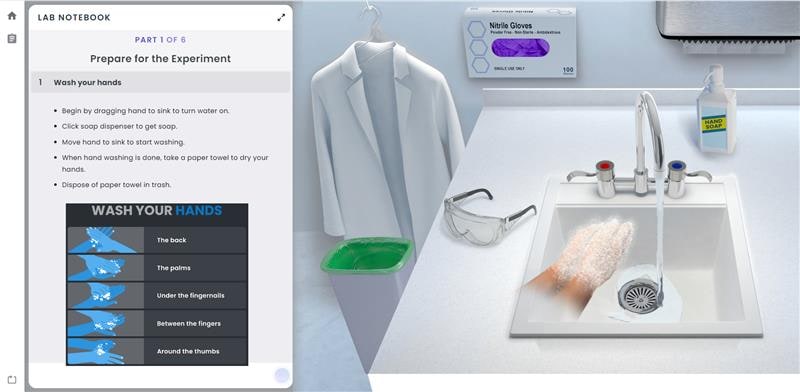
From passion to profession: How anatomy and physiology set the foundation for my nursing journey
I wish I could say I have an extraordinary story to tell about why I wanted to be a nurse. Where I saved someone’s life on a random day, or I was impacted a certain way when at the hospital. Truthfully speaking, the reason why I concluded to become a nurse was because of anatomy and physiology. When I was in high school taking anatomy and physiology for the first time, I was captivated by the beauty of the human body, specifically the heart. I was entranced by the simultaneous complexity and simplicity of the structure of the heart. From here, I entered an endless cycle of wanting to learn more.
I knew I had many exams ahead of me before I could finish my nursing journey. However, the first step was to prepare for was the TEAS (Test of Essential Academic Skills) exam. The TEAS is a standardized entrance exam used at my nursing program to judge how competent you are to enter the nursing program. It covers areas such as reading, math, science, anatomy and physiology, and English. Considering that my strongest suits had been reading and math, I primarily focused on studying for the science portion of the exam. This accounted for my many trips to the school library alongside my anatomy and physiology textbook. Each day I would set aside 3-4 hours of studying where I really focused on the foundation of the various systems in the body. Practice questions were my lifeline. As humbled as I would be when I got an answer wrong, it made me realize that I needed to look over the material and figure out what I was not understanding. With the assistance of the Mastering A&P questions, I was able to have a trusted guide to develop my weaker areas.
Soon enough I received my score from the TEAS and got into the nursing program. Now came the hard part: passing nursing school. I cannot describe in words the culture shock I had when entering my human assessment and fundamentals class. It required a different level of understanding and analyzing practice questions, since the course transitioned from straight forward questions to critical thinking analysis. From the whirlwind of late-night study sessions, clinical rotations, and the weekly exams, nursing school has been nothing but a rollercoaster ride. However, I believe the reason I am able to comprehend and pass every exam is my solid foundation of anatomy and physiology. Once you understand how an organ is supposed to function, you can understand where it is going wrong. For example, veins take blood to the heart while arteries take blood away from the heart. Now, a patient comes in with pain in their legs that worsens with exercise, pain eases with rest and reports numbness and paresthesia. As a nurse assessing this patient, I can suspect maybe there is a problem of circulation either between the veins or arteries and can expect a certain level of care for this patient. Nonetheless, I would not be able to come to this conclusion if I did not know the way our bodies receive circulation.
On top of having a good foundation of anatomy and physiology, I have found it critical to pair that with practicing NCLEX-style questions to prepare for the NCLEX-RN (National Council Licensure Examination for Registered Nurses) exam. The NCLEX-RN is a computer adaptive exam that has to be passed in order to establish licensing for an individual to work as a Registered Nurse. This dynamic combination is a powerful tool for not only passing the NCLEX exam but becoming a competent nurse. As I am passing the last hurdle of the program, I focus my energy on completing and revising practice questions. Nursing students at Miami-Dade have to take an exit exam that calculates our probability of actually passing the NCLEX. This exam covers all the principles that we have been learning from the beginning. Having questions that mimic real world scenarios requires us not only to recall information but also apply it. It is the bridge that connects our theoretical knowledge of anatomy and physiology with the practical nursing interventions required to be competent. To give an example, prioritization questions help us understand which patient should we designate care to first in critical settings. As you may know, nurses will have multiple patients at a time, but it is up to the nurse's critical judgment to decide which patient takes priority over the others. A patient going into cardiac arrest will take priority over a patient who is vomiting blood. With the recurrent practice of this style of questions I will be able to go into the real world and identify which one of my patients has the higher risk of getting hurt and who I have to assess first.
To sum everything up, nursing school is not about just passing a test. It is the foundation of our nursing care and having reassurance in knowing that we are well prepared to provide safe care to our future patients. Combining a strong foundation in anatomy and physiology with consistent practice of NCLEX-style questions will provide the smoothest pathway to succeed in the nursing field. I know that the first few years of being a nurse will be the most difficult transition in the beginning. Learning the hospital's policies and the way to ease communications with different patients and hospital personnel will be something I learn on the job. However, I can sleep comfortably knowing that I have the knowledge to provide safe and competent care to any patient that comes into my hands.
